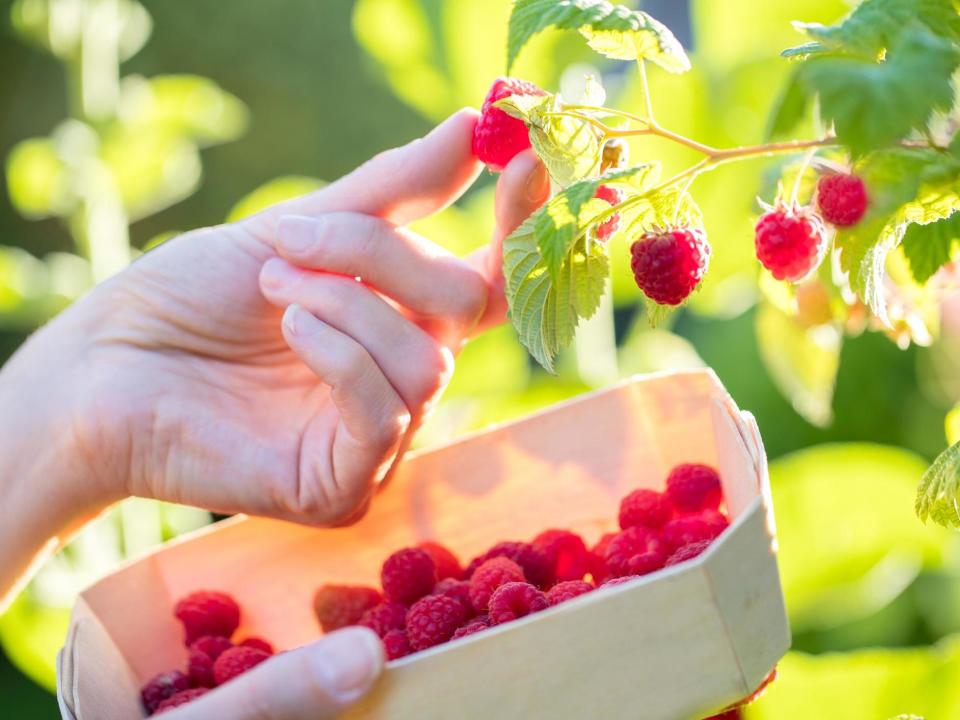Why making small, green changes to your lifestyle is more beneficial to the environment than you think

How can something as simple and homely as making raspberry juice in Peckham have anything to do with saving the planet? Many writers and environmental campaigners argue that greening our own lifestyles is a waste of time as we should be devoting all efforts on pressing for government action.
If changing our own lifestyles is all we do, then, of course, it won't make a vast difference – but I am still doing it as best as I practically can, and so should you. Why? Because it builds the moral foundation from which we can insist that our governments, businesses and communities protect the climate and what is left of nature.
Gandhi understood the sense of personal empowerment that arises from being the change we wish to see in the world. If we all do the best we can in our own lives, it will make a collective difference, showing others that it is possible to live green, happy, healthy lives.
Making my life greener gives me little victories that bring me strength during the ups and downs that campaigning and protesting entail. It also helps to prevent burnout.
Over 34 years, I have gradually made my life greener. I am now veggie, car-free and enjoy flight-free holidays. My home was the first London house to sell metered solar electricity to the national grid in 1998 and became its first net carbon-negative home six years later. My gas bills average about £12 per year and I have produced on average only half of a wheelie bin of non-recycled household waste per annum for over a decade.
But often it is the very small changes that bring me joy – the latest being homemade raspberry juice.
For years, I bought organic apple juice to moisten and sweeten my muesli, which reduced my high-carbon milk consumption.
Using 200ml of milk for my daily cereal consumed 73 litres per year, which emits a quarter of a ton of CO2. If a family of four uses a litre of milk a day, it would emit the same amount of carbon from driving 4,700km, while the land used by the cow would span 10 tennis courts. Imagine all the fruit and vegetables we could produce with an allotment of that size.
Five years ago, I realised I could make my own apple juice from the apples from some neglected local apple-trees. I have been using this on my muesli ever since, from late July until February, when the stored apples run out.
I have also been building up the range of perennial soft fruit in my small south London garden. I now have apples, pears, raspberries, strawberries, plums, damsons, purple and golden gooseberries and black and red currants growing with varied success. As the weather impacts different fruits each year, having a variety helps ensure you have some fruit every summer. Together with foraged blackberries and apples, I supply over half my annual fruit locally; my ambition is to get to 100 per cent.
Two portions of fruit a day equates to 728 a year per person. This is more than my little garden could produce. Hence the dependency on additional foraging, especially for apples and blackberries.
This year I had too many raspberries for my daily two portions but not enough to make jam, so I hit on the idea of experimenting with juicing the excess and using that to moisten the muesli instead of shop-bought apple juice. It took just 30 seconds in the liquidiser with some organic sugar and water to make it. As the raspberries were home-grown and the second-hand liquidiser was powered by my solar panels, juice production was almost zero-carbon, other than the couple of spoons of added sugar.
The UK imports a staggering 83 per cent of our fruit and most of it is industrially produced.
This involves a plethora of environmental damage including carbon emissions, water-consumption, packaging, fossil-fuelled electric refrigeration, pesticides, artificial fertilisers, flights, HGV road pollution, wildlife destruction, insect deaths and soil loss. Foraging or growing our own organic fruit using rain-water storage avoids almost all of these issues.
Providing my own two portions of organic fruit per day for over half the year saves me about £400 and providing my own fresh fruit-juice daily saves about another £200. My apples and raspberries have zero food-miles, while the 45,000 tonnes of apples the UK imports annually from New Zealand travel over 18,000km.
I cannot describe the simple joy of making little discoveries like these. They help maintain the inner-strength needed to face the challenges of being an ecological campaigner, while recognising that green perfection is a process, not a destination.
Taking these steps and telling others what we are doing and why inspires others to do the same. This is how bottom-up social change often happens. It is slow at the beginning and then accelerates once over 10 per cent of the population has transformed. It is also a way that politicians can be assured that changes are practical and safe to implement.
Of course, the climate and ecological emergencies are now so urgent, that they cannot wait for this process to play out. That is why practising what we preach as well as campaigning hard to get the media, banks, oil corporations and governments to change is so crucial.
Once they make the kinds of adjustments we need, it's easier to then demand our governments practice what they preach on climate and protecting nature, comfortable in the knowledge that you are only asking of them what you have already asked of yourself.
Read more
The City is urging climate action but its banks need to do more
UK consumption ‘fuelling Amazon fires’
Temperatures on course to exceed 1.5C climate target for first time
Climate crisis may drive mosquito-borne Zika virus into Europe
Is China’s ‘iron fist’ approach the answer to the climate crisis?

